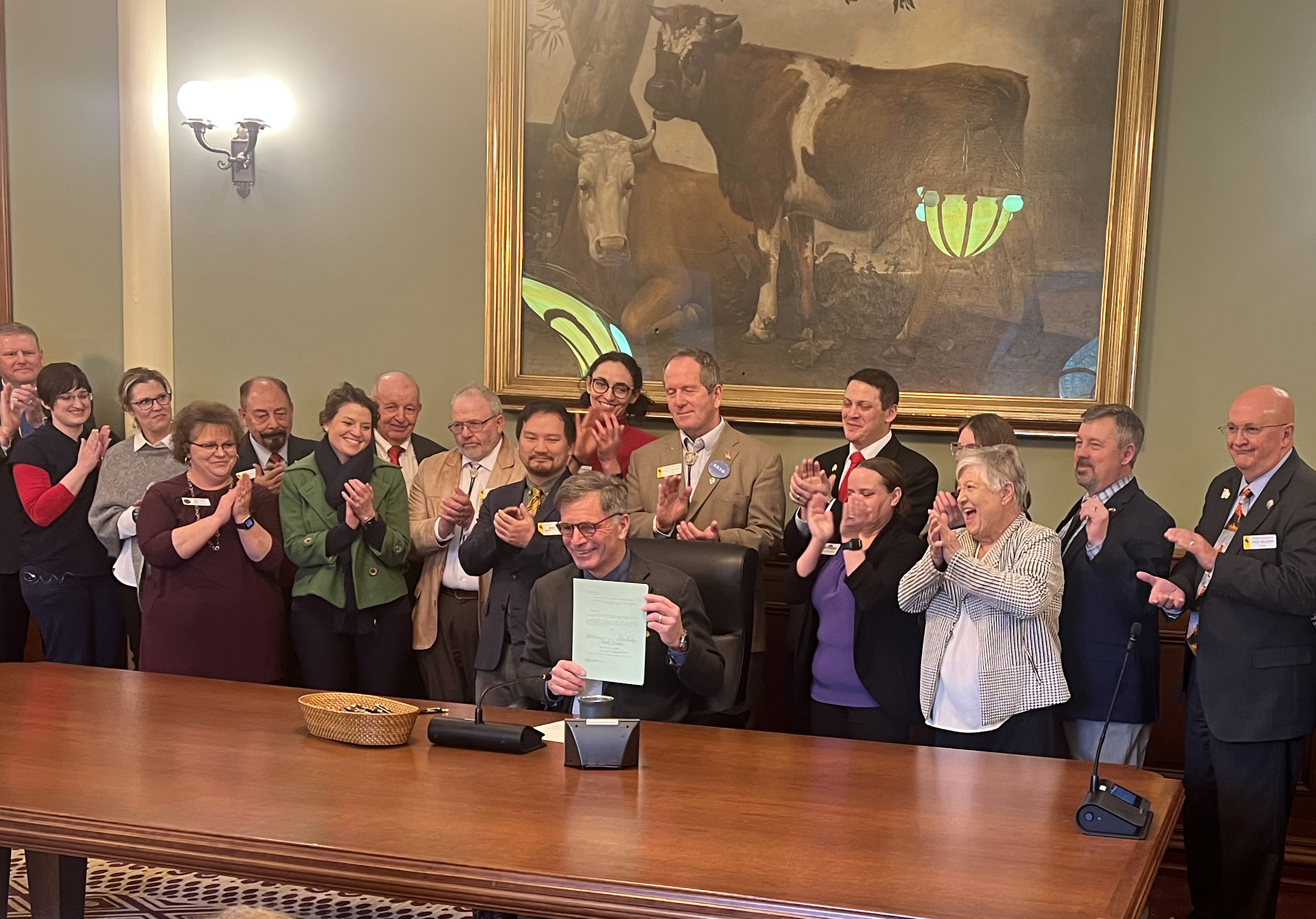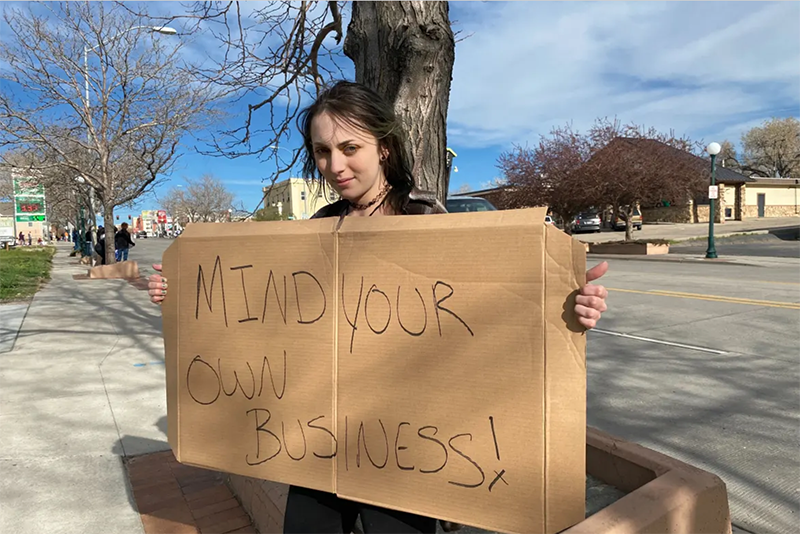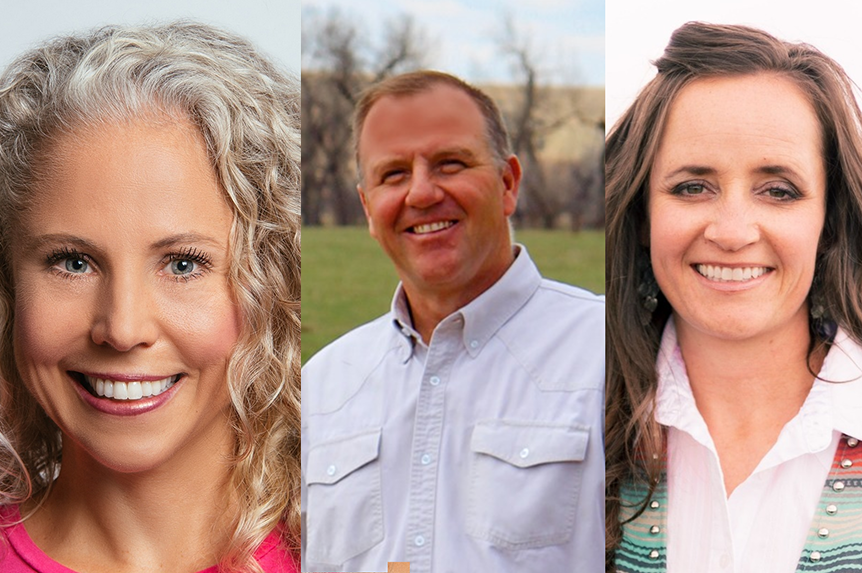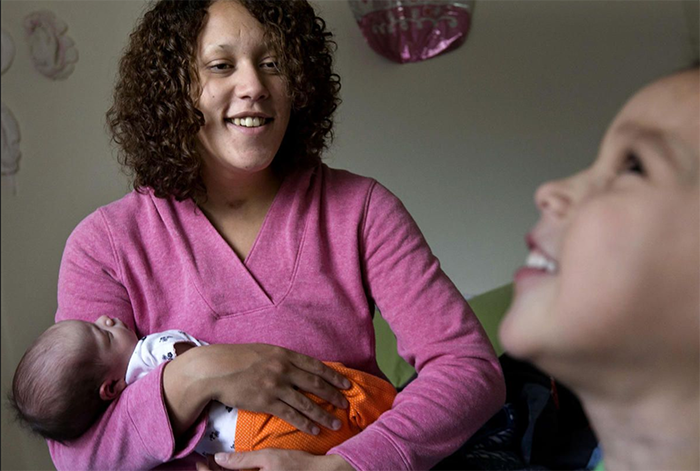The winding road to Wyoming’s biggest healthcare access win in a decade
It took some dramatic twists on its legislative path, but a historic Medicaid bill that will benefit thousands of low-income Wyoming mothers and babies made it across the finish line during the 2023 session.
On Friday, Governor Mark Gordon signed into law “House Bill 4 – Medicaid 12 month postpartum coverage” surrounded by an audience of lawmakers and grassroots advocates for healthcare access.
Better known as “Medicaid for Moms,” the bill extends the period of time during which low-income new Wyoming mothers are eligible for Medicaid coverage, from 60 days after they give birth to an entire year.
According to the Wyoming Department of Health, nearly a third of births in Wyoming are from moms who qualify for the program.
House Bill 4 marked the first time in more than a decade that the Wyoming Legislature has approved a broad increase in access to the state’s Medicaid program.
Its passage was a win for the grassroots Healthy Wyoming coalition, which concentrated its efforts behind “Medicaid for Moms” once House Majority Floor Leader Chip Neiman (R-Hulett) singlehandedly killed the coalition’s larger goal of full Medicaid expansion.
The pro-life, anti-MedEx “Medicaid for Moms” coalition
The passage of “Medicaid for Moms” was never a gimme. The Wyoming State GOP, the Wyoming Freedom Caucus, the Wyoming chapter of Americans for Prosperity, and the Florida-based Foundation for Government Accountability all worked to stop new Wyoming moms from gaining healthcare access.

In addition, both House Majority Floor Leader Neiman and Senate Majority Floor Leader Larry Hicks (R-Baggs) attempted to block HB-4 with procedural tactics.
This opposition may have doomed HB-4 if many pro-life Wyoming lawmakers had not taken it up as a cause while they voted to restrict access to reproductive healthcare.
“If we’re going to hold the line and protect life by outlawing abortion, we also need to be damn sure we’re prepared and willing to roll up our sleeves and fund programs for mothers and children,” wrote freshman Rep. Cody Wylie (R-Rock Springs) in an op-ed supporting “Medicaid for Moms.”
Several HB-4 champions emphasized the connection between healthy babies and ensuring mothers have health insurance so they can take care of their infants.
“If you claim to be pro-life, you have no other option but to support this bill,” Sen. Ed Cooper (R-Ten Sleep) argued on the Senate floor.
“If we’re going outlaw abortion, we also need to be damn sure we’re prepared and willing to roll up our sleeves and fund programs for mothers and children.”
Opponents of HB-4 tried to sow confusion by claiming that “Medicaid for Moms” is the same as Medicaid expansion.
For many Wyoming lawmakers, Medicaid expansion’s connection to Democrats and former President Barack Obama makes it an untouchable issue, even if they understand it is a popular policy that would benefit tens of thousands of Wyoming residents.
Fortunately, the differences between Medicaid expansion and “Medicaid for Moms” are relatively easy to grasp—one expands the pool of who qualifies for coverage, while the other simply extends the period of time that people who qualify under existing guidelines can receive coverage.
Once skeptical lawmakers understood this difference, several became strong supporters.
“I’m a ‘no’ vote on Medicaid expansion—always have been and always will be,” said Sen. Dan Dockstader (R-Afton). “But that’s not what this is. I’ve got no problem standing with these newborns and their moms. Because in a perfect world we have people who will help. It’s not a perfect world.”
Life or death for new moms and their babies
Medical providers, nurses, healthcare nonprofits, clergy, and people who struggled with postpartum health issues all testified at committee hearings in favor of HB-4.
Megan Schuster, a Cheyenne Regional Medical Center nurse, said her postpartum depression after giving birth to her son in 2020 made her want to die by suicide.
“I would sit there and contemplate how much insulin I could take to quickly and effectively end my life.”
“Most evenings I would lock myself in the bathroom and stare at my insulin pump for a while,” she recalled. “I would sit there and contemplate how much insulin I could take to quickly and effectively end my life.”
Many HB-4 supporters noted the importance of mental healthcare access for postpartum depression, which afflicts roughly one in eight new moms.
Others, including Cheyenne OB/GYN Dr. Rene Hinkle, explained that many other medical issues affect new mothers, as well.
“If a mom is breastfeeding and she gets an infection in her breast, and she’s 90 days postpartum and she can’t afford her medication, then the baby is not going to be nursed anymore,” Hinkle said. “The patient could end up with sepsis—there are major complications that can occur.”
If the mother does go in for care, the doctor added, she’ll end up with medical bills she won’t be able to pay for.
“It’s a huge cycle,” Hinkle said. “Then they may not be able to pay for their medicines, or their baby’s formula or diapers. … Taking care of the mom for this one year after delivery is actually taking care of the babies, and that’s something we need to keep that focus on.”
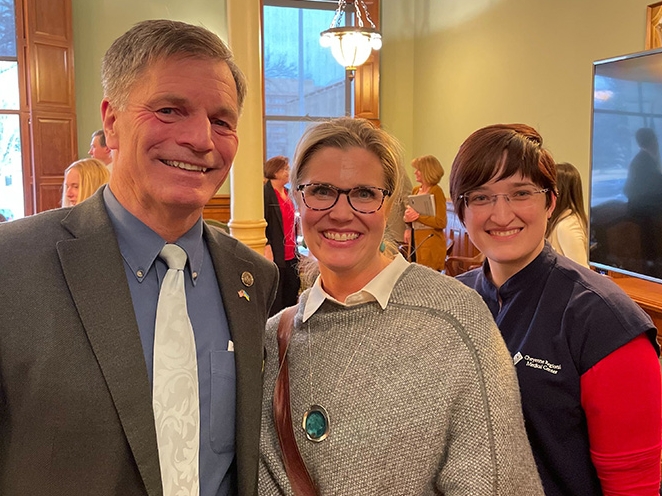
Cheyenne Central High School student Gweneth Hargett pointed out that a single mother with one child cannot earn more than $1,635 per month to qualify for Wyoming Medicaid coverage.
“There is no way a mother can pay for housing, food, and the other essentials and also pay for postpartum care,” Hargett said. “Her health will suffer.”
A monthslong fight comes down to a single vote
House Bill 4 cleared each hurdle on its way to passage by the slimmest of votes.
The Joint Labor Health Committee sponsored the bill, but after the 2022 elections, the composition of that committee changed. Freshmen Freedom Caucus members Reps. Sara Penn (R-Lander), Tamara Trujillo (R-Cheyenne), Ben Hornock (R-Cheyenne), and Jeannette Ward (R-Casper) all landed seats on the House Labor Health Committee.
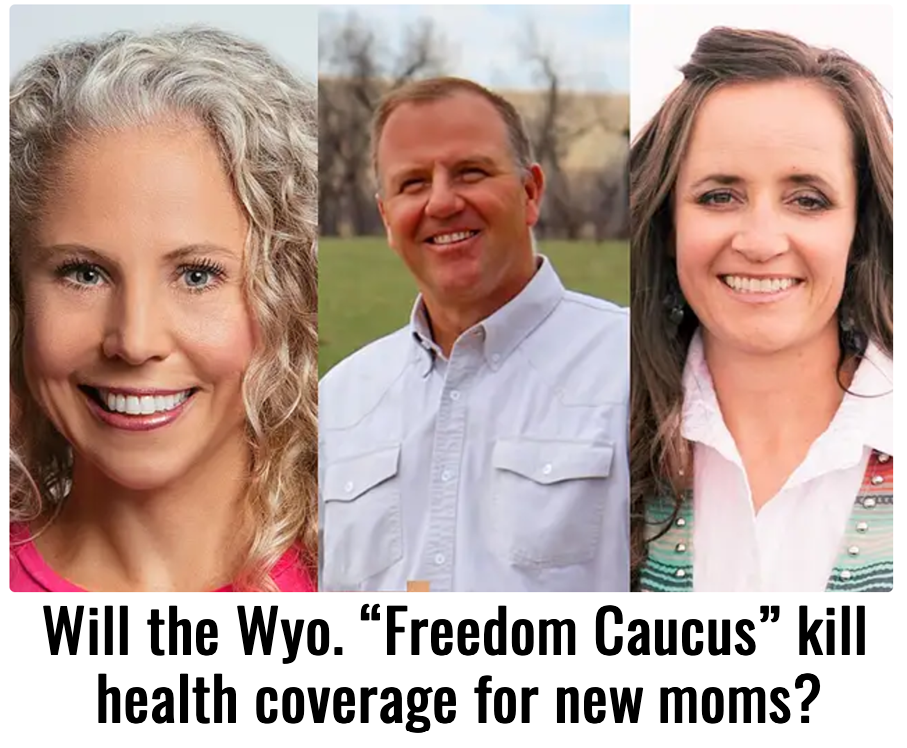
During the committee’s hearing on HB-4, Freedom Caucus chair Rep. John Bear (R-Gillette) instructed his underlings to vote against the bill, and they obeyed. Fortunately, the committee’s five other members voted “aye” and advanced the bill to the full House.
The “Medicaid for Moms” bill languished for weeks in the desk of House Majority Floor Leader Neiman, who is also a Freedom Caucus member. It became clear that Neiman intended to block HB-4 from coming up for debate alongside House Bill 80, the Medicaid expansion bill.
With two days remaining to hear bills in their initial chamber, Rep. Steve Harshman (R-Casper) took action: He proposed an amendment to the 2023 state budget that would effectively do the same thing as HB-4. And, since it was a budget amendment and not a bill, Neiman would have no power to block it.
This forced Neiman to compromise: If Harshman would pull back his amendment, Neiman promised to bring HB-4 to the floor for debate the next day. They each held up their end of the bargain, and the House passed “Medicaid for Moms” by three votes, 34 – 28.
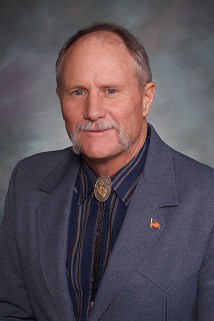
In the Senate, Majority Floor Leader Hicks attempted to hold back HB-4 as well, in order to kill it in the manner Neiman had tried. However, on the final night for bills to come forth for their initial vote, Senate Labor Health Committee Chairman Fred Baldwin (R-Kemmerer) made a motion to override Hicks’ authority and bring the bill to the floor.
Baldwin’s motion passed, 16 – 14. Hicks then moved to immediately adjourn the Senate and end discussion, but his motion was voted down by the same margin. Hicks then moved to re-refer HB-4 to the Appropriations Committee, a delay tactic that would also have killed the bill, but Sen. Eric Barlow (R-Gillette) pointed out that the Appropriations Committee had already approved HB-4.
With no more ideas, Hicks sat down in a huff. Several of his colleagues spoke on behalf of the bill, including Baldwin, a physician assistant, who said a woman may do fine for six months after she gives birth, then suffer a complication that could cause her death.
“Should that happen mostly because she couldn’t afford to come in and keep regular doctor’s appointments?” Baldwin asked.
No, of course not. And fortunately, by a single vote, the Senate agreed.

